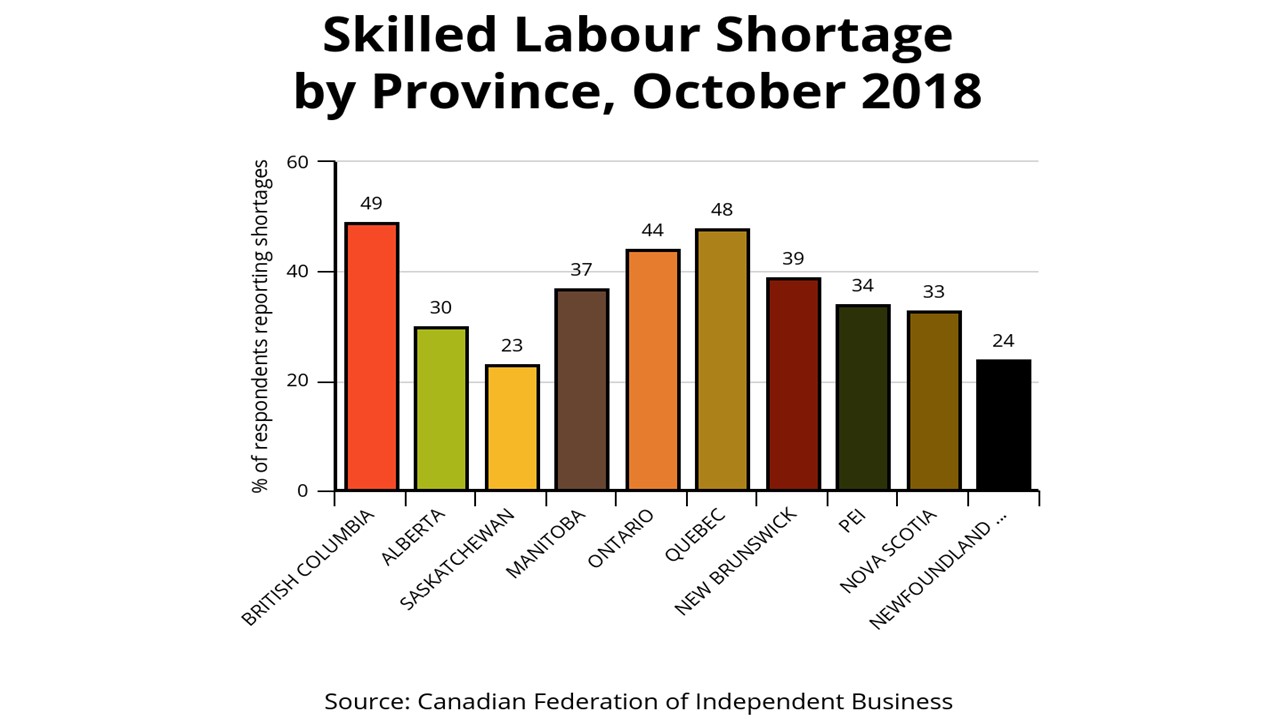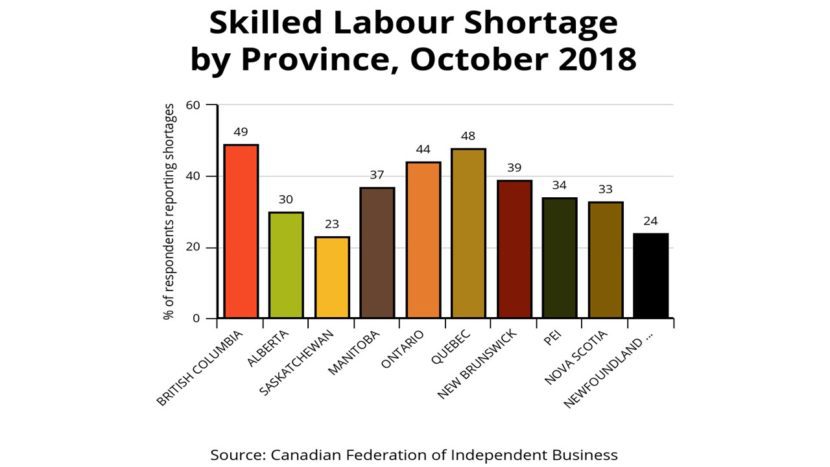Record number of small Canadian businesses reporting skilled labour shortage
Canadian Federation of Independent Business says greatest shortages reported in B.C., Quebec and Ontario
A record 47 per cent of small Canadian businesses report that they are experiencing a shortage of skilled labour, a monthly survey conducted by the Canadian Federation of Independent Business has found.
The findings in the Canadian Federation of Independent Business (CFIB)’s October 2018 Business Barometer survey is a roughly 10 per cent increase from survey results for January 2018 and a 20 per cent increase from its January 2016 results.
The CFIB said the shortage is forcing many employers to limit their hiring plans and “putting pressure on their ability to grow.”
Provinces where the greatest shortages in skilled labour were reported included British Columbia, Quebec and Ontario.

Industries reporting the highest shortages in skilled labour were construction, transportation, personal services and natural resources.
The findings were based on replies from 655 federation members selected at random for its monthly Business Barometer survey.
The CFIB has been a vocal proponent of immigration’s role in helping solve Canada’s labour shortage, especially when it comes to higher-skilled positions.
Quebec took a number of steps in recent months in a bid to address labour shortages in the province, especially in regions outside the Montreal metropolitan area.
Among these changes was the adoption of a new Expression of Interest system for the Quebec Skilled Worker Program that the government says will facilitate the selection of workers with skills that meet shortages in the province’s regions.
Ontario also recently revised the minimum score requirement for its Human Capital Priorities Stream, which allows the province to search the federal government’s Express Entry system for eligible economic immigration candidates.
All eligible Express Entry candidates are given a score under what’s called the Comprehensive Ranking System(CRS), which determines their position in the pool of candidates.
Instead of a minimum CRS score of 400, Ontario says the score requirement will be left to the discretion of the director in charge of the province’s immigrant nominee program, the OINP.
The director will consider factors such as labour market needs and the province’s economic priorities when deciding on the minimum score. The most recent invitation round through the Human Capital Priorities Stream saw the score reduced to 350 for Express Entry candidates with a job offer in Ontario.
Most Canadian provinces and territories have a Provincial Nominee Program (PNP) that allows them to nominate a set number of economic immigration candidates for Canadian permanent residence each year.

